Dungeon Master-AI Dungeon and Story Creation
AI-powered D&D adventure creation.
Lets start our adventure!
Related Tools
Load More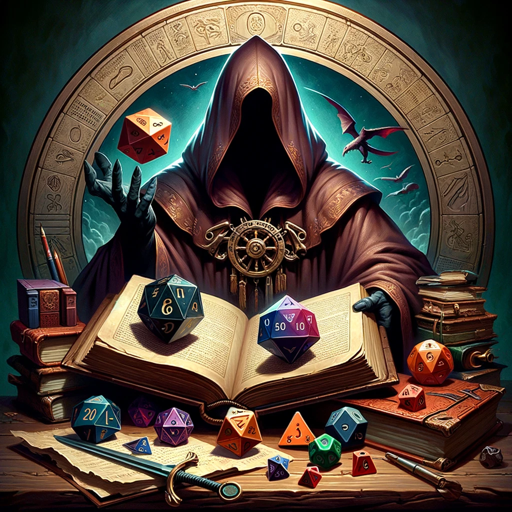
The Dungeon Master
Expressive, dramatic Dungeon Master

dungeons and dragons DnD
Your trusty companion for imaginative storytelling and expert rule guidance in Dungeons and Dragons.
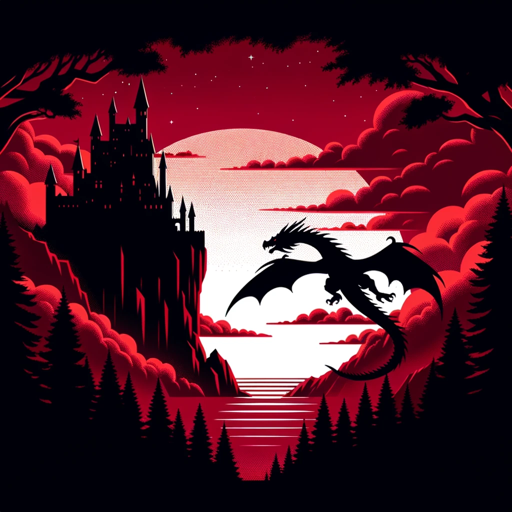
Dungeon Master GPT
A Dungeons and Dragons DM
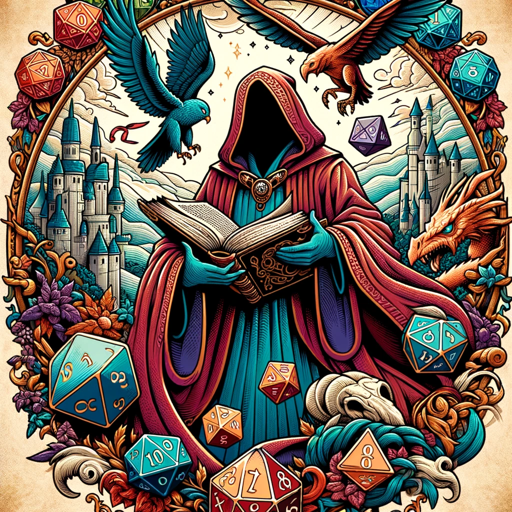
Dungeon Master
Your personal Dungeon Master for single player DnD 5e adventures. Upload an adventure or let the DM improvise one!

The Dungeon Master
Your immersive DnD guide & artist
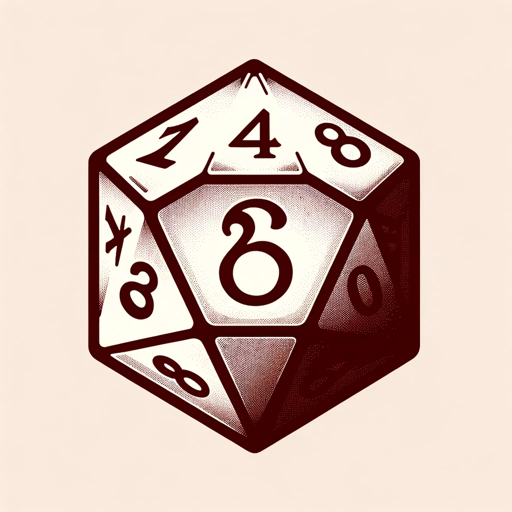
Dungeon Master GPT
Enhanced with a vast D&D knowledge base.
20.0 / 5 (200 votes)
Introduction to Dungeon Master
The Dungeon Master (DM) is the central figure in tabletop role-playing games (RPGs) like Dungeons & Dragons (D&D), responsible for creating, narrating, and overseeing the game's world and its events. The DM crafts the story, controls the non-player characters (NPCs), and interprets the rules to guide the players through the adventure. In this context, Dungeon Master tools and services are designed to help streamline these responsibilities, offering resources, guidelines, and automated systems to enhance storytelling and game management. For example, the DM may use these tools to generate random encounters, create detailed maps, or manage complex combat scenarios, allowing them to focus on the creative aspects of the game. In a scenario, a DM might use these tools to quickly set up an unexpected ambush for the players, complete with detailed descriptions and combat mechanics, ensuring a seamless and engaging experience for all participants.

Main Functions of Dungeon Master
World and Scenario Generation
Example
A DM can use tools to generate a new fantasy world, complete with unique locations, cultures, and histories, or to create a specific scenario such as a mysterious dungeon filled with traps and monsters.
Scenario
In a campaign, the DM might generate a cursed forest where the players must navigate through dangerous terrain, face off against corrupted beasts, and uncover hidden secrets. The tools help the DM quickly build the setting and adjust encounters based on player decisions.
Character and NPC Management
Example
DM tools can assist in creating and managing player characters and NPCs, including their abilities, inventory, and interactions within the game world.
Scenario
During gameplay, a DM might introduce a new NPC who serves as a guide for the players. The tools can help the DM track the NPC's dialogue, motives, and any potential conflicts or alliances with the players.
Combat and Dice Roll Automation
Example
Combat encounters can be complex, with multiple participants and various factors to consider. DM tools can automate dice rolls, track initiative, and calculate outcomes based on player actions and abilities.
Scenario
In a battle against a powerful dragon, the DM uses tools to automate the dragon's multiattack sequence, applying damage calculations, and determining the effects of the dragon's legendary actions, ensuring a smooth and fair combat experience.
Ideal Users of Dungeon Master Services
Experienced Dungeon Masters
DMs who have been running campaigns for years and are looking for ways to enhance their storytelling and game management. They benefit from the advanced features that allow for more complex and immersive game worlds, freeing up their time to focus on the narrative and player engagement.
New or Inexperienced Dungeon Masters
Beginners who are just starting out as DMs can use these tools to learn the ropes, generate content, and ensure they adhere to the rules. The tools provide structure and guidance, making it easier for them to run their first few campaigns without feeling overwhelmed.

Guidelines for Using Dungeon Master
Visit aichatonline.org for a free trial without login, also no need for ChatGPT Plus.
Access the Dungeon Master tool by visiting the website mentioned above. No account creation or premium subscription is required to start exploring the features.
Character and Scenario Setup
Begin by selecting the number of players and their characters. Each player can choose from 12 distinct characters, ensuring no duplicates. After character selection, a randomized backstory is generated for each, or players can input their custom lore.
World and Map Generation
If players have a world PDF, it can be submitted. Otherwise, Dungeon Master generates a world based on the selected characters, complete with a detailed map. The map is visually represented using DALLE for an immersive experience.
Scenario Progression and Decision Making
Dungeon Master presents scenarios based on the generated world. Players make decisions via multiple-choice options or decide their own fate, affecting the storyline and character development.
Boss Battle and Endgame
After progressing through scenarios, players face a final boss battle. Strategies and abilities are employed until a victor emerges. Afterward, players can either end the session or continue with a new adventure.
Try other advanced and practical GPTs
Prompt Generator by JP
AI-powered prompts for every need

Review Copilot
AI-Powered Systematic Review Assistant
Blog to Tweet
AI-driven social content creation

Crypto Insight
AI-powered insights for crypto enthusiasts

Flyer and Business Card Creator
AI-Powered Design for Everyone

Cartoon Transformer
Transform Your Photos into Cartoons with AI

Garden Design Maestro
AI-powered garden design for everyone.

ASCII Art Creator
AI-powered ASCII Art Generator

Making AI Content More Human
Transform AI content into human-like text

The "What If" Historian
AI-powered tool to explore 'What If' history.
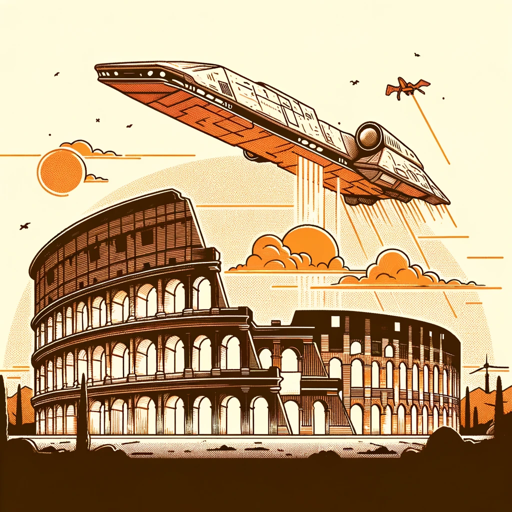
BibleGPT
AI-powered tool for biblical insights
Data Label Wizard
AI-powered labeling made simple

- Dungeon Creation
- Character Setup
- World Generation
- Scenario Progression
- Combat Management
Common Questions About Dungeon Master
How can Dungeon Master enhance my D&D gameplay?
Dungeon Master streamlines the process of creating and managing D&D adventures. It handles character setup, world-building, and scenario generation, allowing you to focus on storytelling and gameplay.
Can I customize the backstory of my character?
Yes, after Dungeon Master generates a randomized backstory for your character, you have the option to input your own custom lore, ensuring your character aligns with your vision.
How does Dungeon Master handle combat scenarios?
Combat scenarios in Dungeon Master are managed through a combination of storytelling and randomized dice rolls. The tool provides detailed outcomes based on player decisions and character abilities.
What kind of maps does Dungeon Master generate?
Dungeon Master generates highly detailed, medieval-style maps for the world and dungeons. These maps are created using DALLE, providing a visual representation that enhances the immersive experience.
Is Dungeon Master suitable for beginners?
Absolutely! Dungeon Master is designed to be user-friendly, providing step-by-step guidance through the character and world setup. Its automated features make it accessible for both new and experienced players.